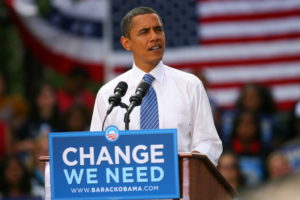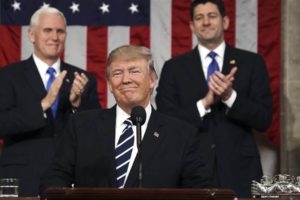In the early days of America, small business owners served their country in elected positions; however, these men were anxious to return to their farms and shops because they only served out of compassion for country. In today’s time, those elected to preside over us are “career politicians” that are out of touch with the true economic engine of America – small business. The storm clouds over small business from this economic crisis are troubling, but consider the fact two-thirds of employment growth and 50% of GDP originate from small business, I believe more aid is needed to restart America’s economic engine.
The more known and commonly discussed challenge is the lack of credit to business owners. Of course, this is squeezing business owners from two sides, because the lack of credit is causing consumers to stop consuming. Owners have to make adjustments in their operations to align inventories and capacity with demand. In addition, they are managing balance sheet issues due to either a reduction in availability of credit or tightly constrained cash reserves from a drop in revenues. All of this is causing our unemployment lines to swell with workers from manufacturing, technology, financial services, and a host of other industries.
I give kudos to the Obama administration for some of the provisions in the Stimulus Bill. More specifically, increasing SBA guarantees on their famed 7(a) loans along with expanding the number of years to claim NOL losses are to be celebrated. In addition, some companies might benefit from the provision that accelerates depreciation on capital purchases; however in the current climate I do not expect many companies to invest in new equipment. I argue that a substantial reduction in payroll taxes or a “payroll tax holiday” for a defined period would have done more to stimulate the economy and help owners to save jobs.
No economist will disagree that America has a fight with inflation coming soon. The overnight rate charged to banks on loans or the FED Rate is currently zero percent. The FED is able to do this because inflation is well contained since the battle with exploding energy prices last summer. Future inflation will come from current adjustments in monetary and fiscal policy that have expanded the monetary base significantly. The challenge for the FED is not as great because they can contract the base through an increase of interest rates or through selling various assets to soak up excess cash in the system. When the fight with inflation arrives the FED will raise interest rates and that will cause growth to slow from credit becoming more expensive to businesses and consumers.
Now let us explore the fiscal policy side of the equation. Money injected into the financial system through fiscal policy is not as easily extracted and in all cases will lead to inflation – a hidden tax on the poor. The crisis in our economy has not stabilized and once it does we can expect a period of stagnate growth. This slow growth economy will produce less tax receipts to the Treasury and tax rates will increase to pay the debt service on all of this spending. President Obama recently announced he would raise taxes on earnings $250,000 and above or in other words – small business. Owners will finance the recovery package through a higher levy on their income, but there are virtually no solid provisions to bailout small business in the bill.
Factor in the challenges at the state level and the outlook is grim. In North Carolina, Governor Perdue recently announced state tax revenue was down over $260M and conservative economists are now predicting a budget shortfall of $3B at a minimum. Undoubtedly, the $6B from the stimulus bill over the next two years will prove helpful. However, this fiscal year is not complete and I expect that revenue will continue to decline and expand the projected deficit. The moving revenue target will cause trouble for a governor that is trying to prepare her first fiscal budget. Without question I believe Governor Perdue will have to search for other revenue sources, which will include new taxes on services, more taxes and fees related to transportation, and there is a strong reason to believe that she will have to pitch North Carolinians on a bump in the sales tax.
Any new fees or higher taxes during a time of slow growth will desperately harm consumers and the business climate. Is there any other way? Perdue or Obama will not be able to cut enough programs to plug large holes in their respective fiscal budgets and will have no other alternative to generating more revenue in a time of slow growth to maintain core operations. Sounds familiar, but business owners cannot readily demand more money from their customers to plug holes in a time of crisis. The critical need for government is to defend responsible and fair trade while implementing policy that will encourage economic growth for its people. Consumers and owners desperately require “true” tax relief and expanded freedom to utilize talents for the creation and sustainment of private enterprises.




